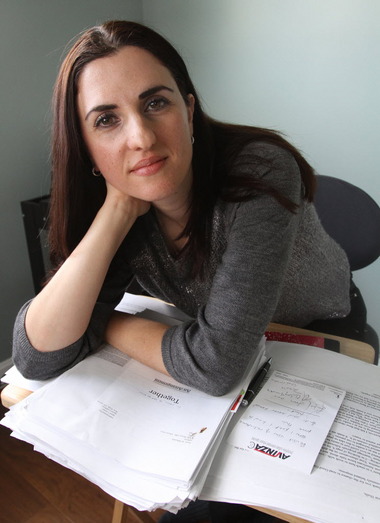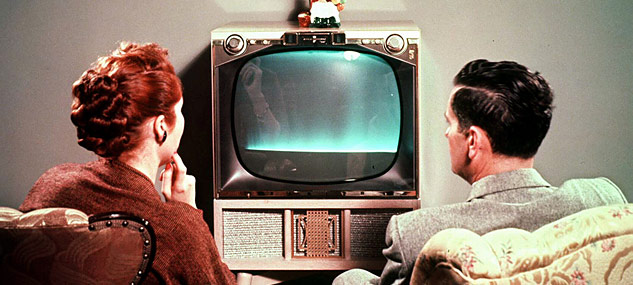When I was growing up, my Iraqi-born mother responded to my requests to travel alone, consider schools out-of-state, or stay out late with friends with the same answer, “When you get married.” Once I got married, I’d be somebody else’s problem. Then, it wouldn’t be her place to tell me no. Then, it would be my husband’s job to worry about me.Marriage, in my adolescent mind, was the only way to an independent adulthood. Western culture may have referred to marriage as settling down, but I associated it with freedom
Marriage would sanction my first relationship with a man. It would transition me from my parents’ authority to my husband’s, and I was convinced my future husband would do whatever I wanted. He was not an individual with his own goals and desires; he was the supporting actor in my life’s script.
The bridal magazines I pored over as a teenager only confirmed this notion. In every wedding dress advertisement, the groom’s sole purpose was to gaze longingly at his beautiful bride. Clearly the bride was the star of the wedding, the most important character, and this alone made marriage superior to dating. Girls with boyfriends didn’t get pearly sets of bone china, gleaming flatware, or crystal goblets; they didn’t don flowing white gowns with tiaras, slice into towering cakes, or go to exotic destinations for their honeymoon. But if I was a married woman, I could wake up next to my husband, watch him shave every day before leaving to work in a pressed suit and tie, and then according to Sheena Easton’s Morning Train, he’d come home and take me a movie, to a restaurant, slow-dancing, anything I want.

Photo Source: cleveland.com
The two cultures I straddled, American and Iraqi, disagreed on so much, but they both agreed that marriage was a shiny new beginning. It was a life of matching underwear, fancy pajamas, sophisticated clothes, and smooth, hairless legs. It was beautifully set tables with fresh flowers and groceries bought at boutique markets. I didn’t see these ideas as the realization of my every when-I-grow-up image. I didn’t recognize that I was falling for advertising’s promise that consumer fulfillment led to personal transformation.
When I was twenty years old, I married the son of our closest family friends in a wedding that brought my every bridal magazine fantasy to life. But after six hours of smiling for photographs, hugging family and friends, and twirling under a grand chandelier in layers of tulle, I was no longer a bride. I was a wife in a lifelong relationship with another person, a daughter in another family. While those new ties brought with them wonderful, tender moments, I hadn’t allowed any room for the mundane in my vision of the future, and anything short of sheer fabulousness, shook me. Friday night movies at home meant my husband and I were already a boring married couple. Lazy Sunday mornings meant we never did anything fun. Quiet weekday dinners meant we’d run out of things to say to each other. Squabbles over whose parents we’d stay with and for how long meant we were too different to ever be happy together.

Photo Source: singlemindedwoman.com
On visits home, I complained to my mother. “Why did you tell me I could do everything after I got married? Marriage just makes things harder.”
To this, she offered different explanations. “That’s what I was told;” “I just wanted something to tell you to keep you home and safe;” “It is one thing to let a boy go out in the world alone, but with a girl, you worry about her reputation;” “Maybe it wasn’t right, but how was I supposed to know you were listening so carefully?”
Gradually I came to see the particular, the maternal, and even the fear behind the rules that had defined my life, the rules I’d always assumed were based on my religion or at the very least, my culture. And even more gradually still, I came to understand that while I’d inherited a myriad of gender, familial, and media expectations, these ideas had only been partially to blame for my discontent. The truth was that simple refrain of “When you get married,” had cleaved my mind. It had convinced me of a great big divide, the before and after marriage.
What I wish I’d known as a twenty year old bride is that for all the externals that change with marriage, the nature of life is consistent. There is no fix to the angst of living, no person that will deliver you from the work of existence. You will feel lonely; sometimes when your spouse is sitting right next you or sleeping in the same bed. You will navigate your mind’s mental wilderness alone, and you will communicate what you found there to a partner who may or may not understand. Your underwear will get holes in them. You will wear your ratty, old pajamas, and your spouse will, too. One day you’ll understand that this is not the disappointment of married life, but its reward?to carry on with the business of day to day living with someone at your side.
Huda Al-Marashi is an Iraqi-American at work on a memoir about the impact of her dual-identity on her marriage. Excerpts from this memoir have appeared in the anthologies Love Inshallah: The Secret Love Lives of Muslim American Women, Becoming: What Makes a Woman, In Her Place,and Beyond Belief. This article was originally posted at Love, Inshallah.



